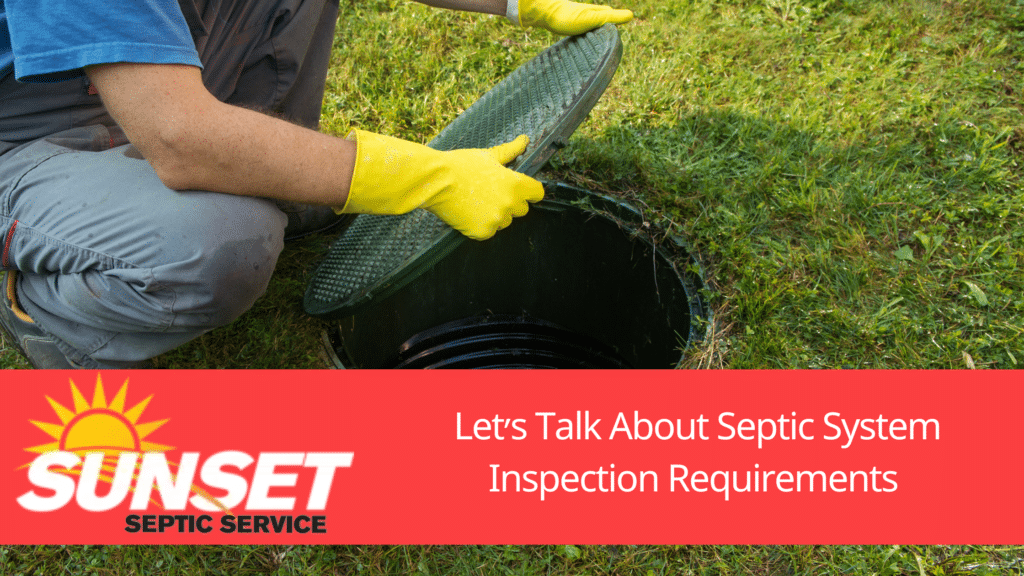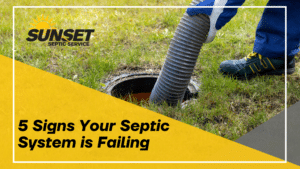You are the proud owner of a home with a septic system; congratulations! You can count yourself among the many Wisconsinites who enjoy the benefits of living a little bit off the beaten path with all the convenience and sanitation of modern plumbing. With freedom and convenience comes the responsibility to maintain your system properly, which means meeting inspection requirements set forth by state law.
What You Must Know About Septic Inspection Requirements in Wisconsin
Before delving into the mechanical and practical aspects of septic system management, it’s always wise to first familiarize yourself with the legal requirements. Under state regulations, all septic systems must undergo a full inspection by a qualified professional at least once every three years. This inspection is important for several reasons, not just legal compliance. Inspections can:
- Help ensure your septic system is working properly to protect not just the environment as a whole but also the cleanliness and safety of your home’s water supply.
- Identify any potential problems that could be brewing before they become catastrophic failures, often allowing you the opportunity to address them more easily and less expensively.
- Help you avoid the mess, misery, and potential health hazards of a septic backup in your home.
What to Expect During a Septic System Inspection
While every situation and property is unique, septic system inspections typically include four primary checklist items: a visual inspection of the tank and drain field, checking the levels of sludge and solid waste in the tank, testing water quality in the drain field, and making sure the system is in good repair.
If you’ve been diligent about only flushing waste and toilet tissue down toilets, not dumping grease down the drains and other basic maintenance, your inspection will likely be quick and painless. Should the inspector find any problems with your system, though, they will be able to recommend corrective action or repairs. It’s vital to follow your inspector’s recommendations to keep your septic system working properly.
Failure to comply with septic system inspection requirements can taint your water supply and contaminate your home, but it can have even more financial pain attached that the cost of sewage clean-up. Other financial consequences can include fines from your local health department on top of potentially expensive repairs or, even worse, a full replacement of a damaged system.
How to Protect Your Septic System Between Inspections
Inspection requirements may seem unnecessary when your system appears to be working as intended, but it’s important to remember that what you can’t see can hurt you. Your septic system is underground and not something you can look at on your own every once in a while to make sure it’s working; the only way to get an accurate view is through professional inspections.
Between these sessions with a professional inspection team, there are things you can do to help your system keep trucking along without issue.
- Avoid parking or driving heavy vehicles over your septic drain field.
- Don’t flush diapers, feminine hygiene products, cigarette butts, or anything else down the toilet. Waste and septic-safe toilet paper are the only things that should ever be flushed. Pro tip: paper towels and facial tissue may seem to be made of mostly the same stuff as toilet paper, but both are engineered to resist breaking down in water. Wipes marketed as “flushable” are also notorious for not breaking down, contributing to malfunctioning systems as well.
- Use septic-safe drain cleaners to address pipe clogs.
By following these tips and ensuring septic inspections happen on schedule, you can help extend the life of your system while protecting the groundwater and your bank account balance. With more than three decades of experience helping Wisconsinites get the most out of their septic systems with the least amount of hassle, Sunset Septic Service can help. Call or contact us to learn more about inspection requirements and how you can best protect your biggest investment: your home.




